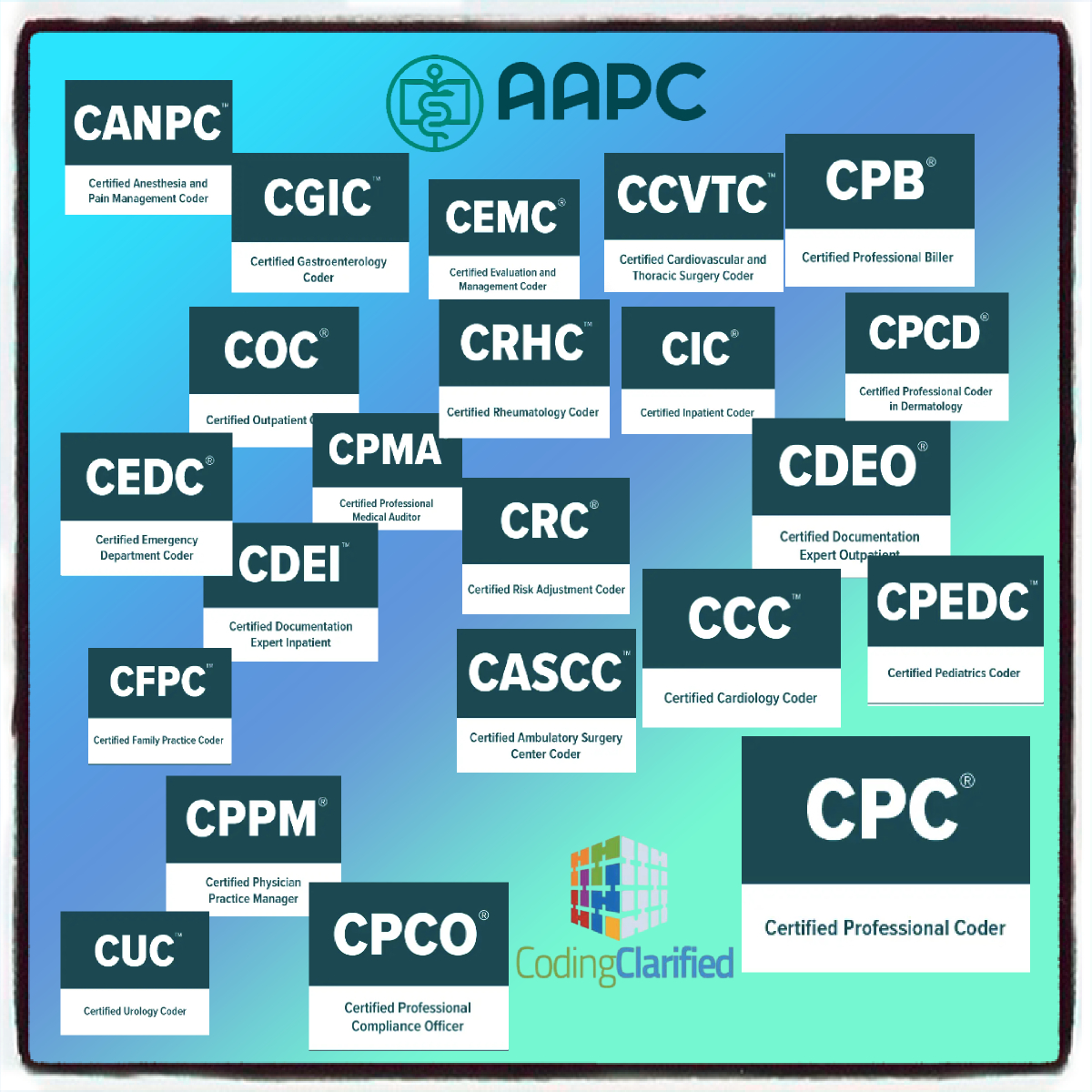Multiple Certifications for New CPC-As: Experience vs. Credential Accumulation
In the evolving landscape of healthcare administration, the role of medical coders is increasingly crucial. These professionals ensure accurate coding of medical procedures and diagnoses for billing purposes, insurance claims, and data analysis. Among the certifications sought after by aspiring coders is the Certified Professional Coder Apprentice (CPC-A) designation, a stepping stone toward becoming a full-fledged Certified Professional Coder (CPC). However, a pertinent question arises: should a new CPC-A pursue multiple certifications without substantial experience to substantiate them? Knowing which medical coding courses and certifications are most helpful will set you up for a successful career in the medical coding field.
The CPC-A certification serves as an entry point into the world of medical coding. It signifies a foundational understanding of coding principles and guidelines but lacks the depth of experience that comes with time in the field. As such, some individuals may be tempted to bolster their resumes with additional certifications in the hopes of standing out in a competitive job market or gaining broader knowledge.
Should You Get Multiple Medical Coding Certifications?
While the acquisition of multiple certifications demonstrates ambition and a commitment to professional development, it raises concerns when done prematurely or without the requisite experience. Here are several considerations:
- Depth vs Breadth of Medical Coding Knowledge
- Relevance to Medical Coding Career Goals
- Value of Practical Application of Medical Coding Knowledge
- Financial Considerations of Multiple Medical Coding Certifications
- Professional Development Plan
Depth vs. Breadth of Medical Coding Knowledge
Instead of pursuing multiple certifications simultaneously, new CPC-As may benefit more from focusing on gaining practical experience in a specific coding specialty. Depth of knowledge and proficiency in a particular area often outweighs the breadth of certifications, especially early in one’s career.
Relevance to Medical Coding Career Goals
Before pursuing additional certifications, individuals should assess their career goals and the relevance of each certification to those objectives. A targeted approach ensures that certifications align with desired career paths and contribute meaningfully to professional growth.
Practical Application of Medical Coding Knowledge
Experience is invaluable in the field of medical coding. Without practical application, certifications may hold little weight to employers. It’s essential for new CPC-As to seek opportunities for hands-on experience through internships, entry-level positions, or volunteer work before pursuing additional certifications.
Financial Considerations of Multiple Medical Coding Certifications
Acquiring multiple certifications often incurs significant financial costs, including exam fees, study materials, and potential renewal expenses. Individuals should weigh the return on investment of each certification against their current financial situation and long-term career prospects.
Professional Development Plan
Developing a structured professional development plan can help new CPC-As navigate the complexities of certification acquisition. This plan should include a timeline for gaining experience, targeted certifications aligned with career goals, and opportunities for continuing education.
Gain Real-World Medical Coding Experience
While the temptation to accumulate multiple certifications may be strong for new CPC-As, it’s essential to prioritize experience and practical application over credential accumulation. Building a solid foundation through hands-on experience not only enhances job prospects but also provides a deeper understanding of coding practices and healthcare workflows. Certifications should complement, rather than substitute for, real-world experience in the dynamic field of medical coding.

